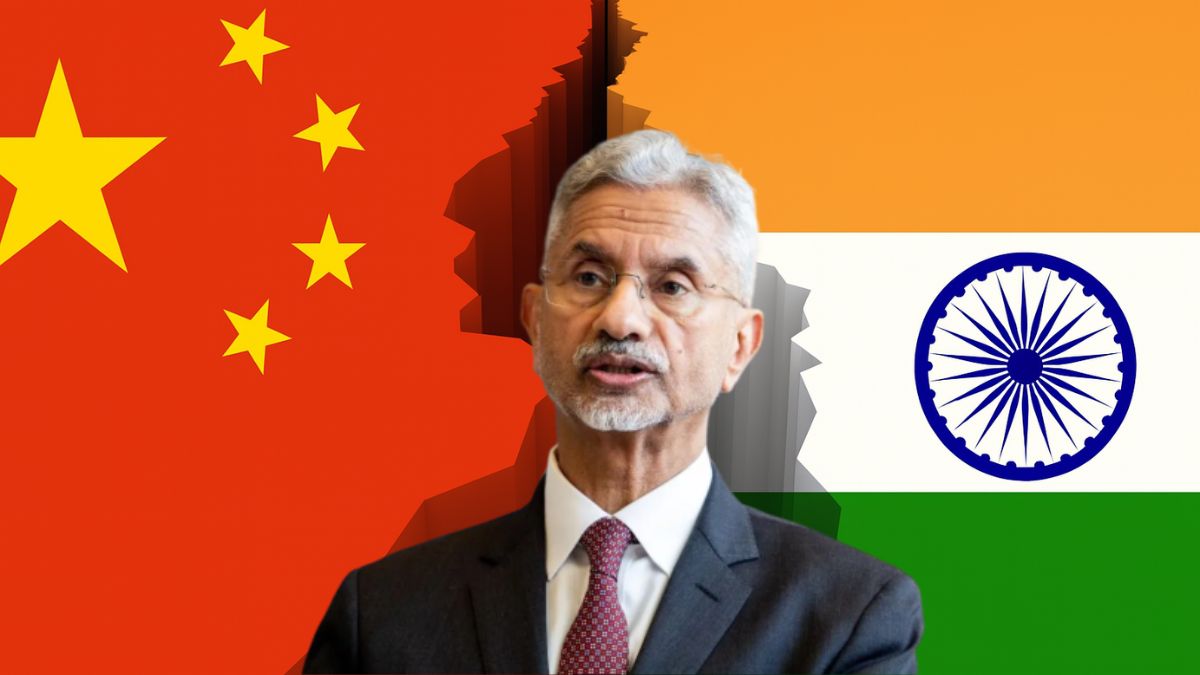Jaishankar’s First Visit To China Since Galwan: Is Slow Reset In India-China Relations Beginning?

External Affairs Minister S Jaishankar is visiting China for the first time since Galwan valley clashes. Image courtesy: RNA
External Affairs Minister Dr. S. Jaishankar has arrived in Tianjin, China, for the Shanghai Cooperation Organisation (SCO) foreign ministers’ meeting, marking his first visit to the country since the deadly Galwan clashes in 2020.
This visit, along with Defence Minister Rajnath Singh’s trip to China in June, signals a potential reset in the often turbulent India-China relationship.
Why is Jaishankar’s visit to China significant?
Jaishankar’s visit is significant as it marks his first trip to China in over five years. The visit comes at a time when both New Delhi and Beijing are keen to stabilise their relationship, with both nations striving to improve bilateral ties.
Jaishankar met with Chinese Vice President Han Zheng, offering support for China’s presidency of the SCO, a China-led grouping that includes India, Pakistan, Russia, and several Central Asian nations. This meeting signifies a growing willingness between the two countries to engage in positive diplomatic exchanges.
What did Jaishankar, Vice President Han Zheng discuss?
During the meeting, Vice President Han Zheng used the metaphor of the “Dragon-Elephant Dance” to describe the potential for deeper cooperation between India and China. He referred to the 2023 meeting between Chinese President Xi Jinping and Indian Prime Minister Narendra Modi in Kazan as a pivotal moment that restarted the momentum in China-India ties.
Han emphasised that as major developing nations and key members of the Global South, both India and China should be partners in supporting each other’s success. Jaishankar, in turn, welcomed the opportunity to discuss and build on the improvement in bilateral ties, expressing confidence that his visit would continue to contribute positively to the trajectory of the relationship.
What happened during Jaishankar-Wang Yi meeting?
Jaishankar also met with his Chinese counterpart Wang Yi and stated that the bilateral relationship between India and China is progressing positively.
In a statement released by the Ministry of External Affairs, Jaishankar said, “Since our leaders’ meeting in Kazan in October 2024, the India-China relationship has been moving in a positive direction.”
He emphasised the need for a forward-looking approach to their ties, saying, “Our bilateral relationship requires that we take a far-seeing approach to our ties.”
Regarding the de-escalation of tensions that began in 2020, Jaishankar noted, “We have made good progress in the past nine months for the normalisation of our relations…our responsibility is to maintain that momentum.”
Jaishankar also remarked that a stable relationship between India and China would benefit not only both nations but also the entire world. “We have earlier agreed that differences should not become disputes, nor should competition ever become conflict,” he stated.
As neighbouring countries and major global economies, he stressed the importance of addressing various aspects of their relationship. “It is essential that restrictive trade measures and roadblocks are avoided,” he added.
Are these visits laying the groundwork for PM Modi’s visit to China?
A key outcome of both Jaishankar’s and Rajnath Singh’s visits is the groundwork being laid for Prime Minister Modi’s potential visit to China later this year for the SCO Leaders’ Summit. China has extended a “warm invitation” to Modi, though New Delhi has not yet confirmed his participation.
Additionally, China’s Foreign Minister Wang Yi is expected to visit India later this month to revive the Special Representatives (SR) mechanism for border dialogue with India’s National Security Adviser Ajit Doval. This mechanism was reactivated following the meeting between Xi Jinping and Narendra Modi during the BRICS summit in October 2024.
What is the current status of border de-escalation discussions?
Despite the positive tone in diplomatic exchanges, border de-escalation remains a central concern. Jaishankar is expected to continue pushing China to accelerate the permanent disengagement process at critical friction points like Demchok and Depsang.
Rajnath Singh had previously emphasised the need for a structured de-escalation plan, stressing that a permanent solution for border demarcation and engagement is crucial for long-term stability.







